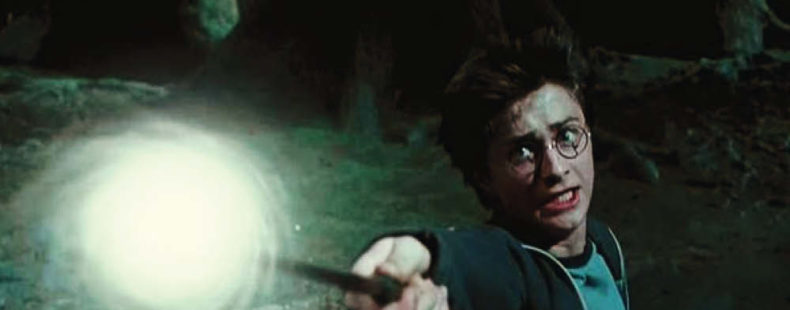The spells at Hogwarts
How did J.K. Rowling come up with the names of all of those magical wizarding spells?
During a 2004 interview at the Edinburgh Book Festival, Rowling said:
“Does anyone know where Avada Kedavra [the Killing Curse] came from? It is an ancient spell in Aramaic, and it is the original of abracadabra, which means ‘let the thing be destroyed.’ Originally, it was used to cure illness and the ‘thing’ was the illness, but I decided to make it the ‘thing’ as in the person standing in front of me. I take a lot of liberties with things like that. I twist them round and make them mine.”
Rowling studied French and Classics at the University of Exeter, and the names of most charms, curses, jinxes, and spells—from Accio to Sectumsempra—are based on Latin roots!
Let’s look at the etymology, or “word origins,” of the spells in the wizarding world—and where Latin ends and Rowling’s imagination begins.






















